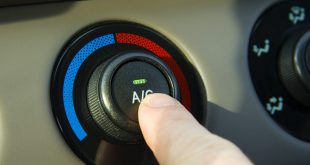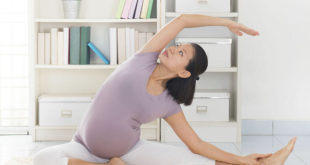
If you spent last night tossing and turning on your mattress, desperate to find that perfect sleeping position, well—you’re not alone.
Australians are a sleep-deprived lot, according to the latest IKEA National Slumber Survey. In the survey of over 2,400 Australians, 70 per cent of people said an uncomfortable mattress kept them awake. Some even said their old mattress was only slightly more comfortable than sleeping on the floor. But more than one in 10 people hadn’t changed their mattress in more than a decade. When people did finally swap their mattress, 56 per cent said not getting a good night’s sleep was the key driver. Springs poking out their old mattress forced 36 per cent of Aussies to shop for a new bed, and 27 per cent said a partner’s complaints about their mattress was the reason why they bought another mattress.
“The secret to quality shut-eye is different for everyone but starts with the basics—the right mattress that supports the back and body type, and is also suited to how an individual moves around whilst sleeping,” says IKEA’s Angela McCann.
Tiredness and fatigue
Whether it’s due to a wriggling partner, noisy neighbours, or an old and lumpy mattress, people wake an average 2.3 times each night. But broken, uncomfortable sleep has a raft of physical and emotional health impacts.
“The lack of sleep and ensuing tiredness is likely impacting on people’s judgement, problem-solving and creativity,” says Angela. “And it no doubt has us rubbing our tired eyes and wishing for Nanna-naps to get us through the day.”
On the road
The IKEA survey found almost 1 in 10 Australians wake feeling like ‘death warmed up’ each morning, and nearly three-quarters of people felt sleep deprived as they faced the day. The risk factors associated with sleep deprivation should not be taken lightly. A study at The Centre for Sleep Research at Flinders University in South Australia found that after 17 hours without sleep, a person will drive as if they have a blood-alcohol concentration (BAC) of 0.05—the legal limit. After 24 hours without sleep, a person will drive like someone who has twice the legal blood-alcohol concentration. Similarly research warns people who are fatigued at work are more likely to have accidents when operating machinery, and they’re more likely to make mistakes and to have poor concentration.
Aches, anxiety and asthma
Sleeping on saggy, lumpy mattresses can also cause back pain and aching muscles. The lack of support in an old mattress allows your spine to bend and this can place strain on muscles and joints, causing stiffness and soreness.
Insomnia is another risk that of a bad mattress. You end up tossing and turning for hours after you go to bed, waiting to fall asleep. Over time, you associate going to bed with not being able to get to sleep. This can then trigger stress and anxiety at bedtime, making it even harder to sleep.
An old mattress can also contain dust mites. That’s a recipe for disaster and a bad night’s sleep if, like more than two million Australians, you have asthma.
Choosing the right mattress
- Don’t be embarrassed to try before you buy. Try out mattresses in store. Lie down and move around on different mattresses until you find one that is comfortable.
- Look for good support. This comes from the coils or springs in the mattress. A mattress should have enough springs or coils to comfortably support your spine. Usually, the more springs or coils there are, the better quality the mattress.
- Firm mattresses usually give more support to your spine, but don’t choose a mattress that is so firm you wake feeling stiff. A mattress that is too firm can put uncomfortable pressure on your shoulder and outer hip when you lie on your side.
- Choose your padding. Some people prefer thicker padding on their mattress, some prefer thinner padding – it’s your choice.
Source: bodyandSoul
 We are sharing information for knowledge. Presented by. SocialDiary.Net
We are sharing information for knowledge. Presented by. SocialDiary.Net



